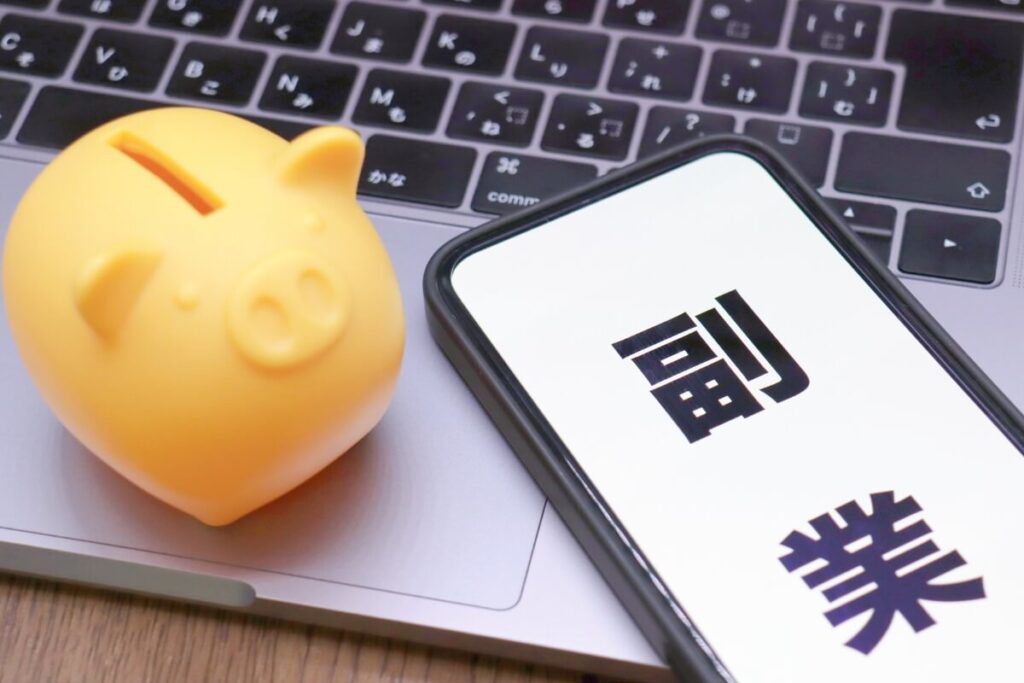
Navigating administrative processes in Japan can be extremely bureaucratic and tricky, and opening a bank account—whether personal or corporate—is no exception. For both residents and businesses, understanding the intricacies of the Japanese banking system is crucial to ensuring a smooth and efficient account opening experience.
In this guide, we’ll cover everything you need to know about opening a bank account in Japan. You’ll find step-by-step instructions for personal accounts, answers to common FAQs, guidance for opening a business account, and an overview of the Japanese banking system, including the pros and cons of different types of banks and accounts.
Contents:
- How to Open a Personal Bank Account in Japan
- FAQs About Opening Personal Bank Accounts in Japan
- Opening a Business Bank Account in Japan
- Understanding the Japanese Banking System
- Requirements for Opening a Corporate Bank Account
- Step-by-Step Guide for Opening a Japanese Bank Account for Your Business Entity
- Additional Services to Consider
How to Open a Personal Bank Account in Japan
Opening a personal bank account in Japan can seem daunting due to the unique requirements and procedures compared to other countries. However, with the right preparation and understanding of the steps involved, you can navigate the process more smoothly.
1. Gather the Required Documentation
Before visiting a bank, ensure you have all the necessary documents. The standard requirements include:
- Residence Card (在留カード, Zairyū Kādo): This card is proof of your legal status and residence in Japan and is essential for opening a bank account.
- Personal Seal (判子, Hanko): Although some banks may accept a signature, having a personal seal is a traditional requirement and often preferred.
- Passport: Your passport will be needed for identification purposes.
- Proof of Address: A recent utility bill, rental contract, or another document that confirms your residential address in Japan.
- My Number Card (マイナンバーカード, Mai Nanbā Kādo): Some banks may require this card, which is part of Japan’s social security and tax number system.
2. Choose the Right Bank
Japan offers lots of banking options, each with its own benefits. Some of the most foreigner-friendly banks include:
- Japan Post Bank (ゆうちょ銀行, Yūcho Ginkō): Known for its extensive network and services in English.
- Shinsei Bank: Offers a range of services tailored for expatriates, including English support.
- SMBC Prestia: Another good option for foreigners, providing comprehensive banking services in English.
3. Visit the Bank
Once you have gathered all the necessary documents, visit the bank of your choice. Here’s what to expect during your visit:
- Selection of Account Type: Decide on the type of account you want to open. The most common options are ordinary savings accounts, which are suitable for everyday transactions.
- Application Form: Fill out the application form provided by the bank. If you’re not confident in your Japanese, many banks have English versions of the forms or bilingual staff to assist you.
- Submission of Documents: Present all the required documents to the bank representative. They will verify your identity and address.
4. Receive Your Bank Book and ATM Card
After processing your application, the bank will issue a bank book (通帳, Tsūchō) and an ATM card (キャッシュカード, Kyasshu Kādo). The bank book is used to record transactions, while the ATM card allows you to withdraw cash and check your balance at ATMs. Many banks in Japan provide online banking services and mobile apps to make your day-to-day banking easier. Just make sure you choose a bank that offers an English language version if you cannot speak Japanese.
5. Understand the Fees and Charges
Different banks have varying fee structures for account maintenance, ATM withdrawals, and other services. Make sure to inquire about any applicable fees to avoid surprises.
6. Keep Your Documents Updated
Banks in Japan require that your personal information remains current. So if you change your address, get a new residence card, or make any other significant changes you should notify the bank.

FAQs About Opening Personal Bank Accounts in Japan
Can a foreigner open a bank account in Japan?
Yes, a foreigner can open a bank account in Japan. You will need to provide certain documents such as a residence card (在留カード, Zairyū Kādo), passport, personal seal (印鑑, Inkan), and proof of address. Some banks may also require a My Number card. It’s advisable to choose a bank that offers services in English and is known to be foreigner-friendly, such as Japan Post Bank, Shinsei Bank, or SMBC Prestia.
Do you need a Japanese bank account to live in Japan?
While it’s not strictly necessary to have a Japanese bank account to live in Japan, it is highly recommended. A local bank account facilitates various aspects of daily life, such as receiving your salary, paying bills, renting an apartment, and making purchases. Without a Japanese bank account, managing these tasks can become significantly more complicated.
Which Japanese bank is best for foreigners?
Several banks in Japan are well-suited for foreigners. Shinsei Bank and SMBC Prestia are particularly popular due to their comprehensive English-language support and user-friendly services. Japan Post Bank is another good option because of its extensive network of ATMs and bank branches across Japan, making banking convenient.
What are the different types of bank accounts in Japan?
There are several types of bank accounts available in Japan, including:
- Ordinary Savings Account (普通預金, Futsū Yokin): The most common type of account for daily transactions.
- Time Deposit Account (定期預金, Teiki Yokin): An account that offers higher interest rates in exchange for locking in your funds for a specified period.
- Foreign Currency Account (外貨預金, Gaika Yokin): An account for holding foreign currencies.
- NISA (Nippon Individual Savings Account): A tax-free investment account available to residents.
How much does it cost to open a bank account in Japan?
Opening a bank account in Japan is generally free. However, some banks may charge a small fee for issuing a personal seal card (キャッシュカード, Kyasshu Kādo) or a passbook (通帳, Tsūchō). Additionally, there might be fees for maintaining certain types of accounts or for specific services, such as overseas remittances.
How long does it take to open a Japanese bank account?
The time it takes to open a Japanese bank account can vary depending on the bank and the completeness of your documentation. Generally, the process can be completed within a single visit to the bank if all required documents are in order. However, it may take a few days to receive your bank book and ATM card by mail.
Can you open a Japanese bank account online?
Yes, some banks in Japan offer the option to open an account online. Banks like Shinsei Bank and Rakuten Bank provide online account opening services, which can be convenient if you prefer not to visit a branch. However, even with online applications, you may still need to submit certain documents by mail or visit the bank for final verification.
Opening a Business Bank Account in Japan
If you’re moving to Japan for business incorporation or establish a subsidiary, you’ll undoubtedly need a personal account for your own finances. But how does the account opening process differ when it comes to Japanese corporate accounts?
Download this cheat sheet for your Japan entity set up, too:
Why You Need a Corporate Bank Account in Japan
A dedicated Japanese corporate account, whilst tough to open, is much more than a place to park your funds. It’s a strategic advantage and the foundational element for any business who aims to operate efficiently, professionally and compliantly in the Japanese market.
Using a personal account, while convenient at first, is simply inefficient and in some cases risky. This is why it’s critical that you get a solid grip on just what exactly the upsides of opening a corporate account are:
- Transparency: A corporate account allows you to separate personal and business funds. This is super important as it eliminates the risk of mixing income and expenses and thereby ensures financial records are crystal clear.
- Credibility: A corporate account instantly signals to clients, suppliers and partners that you’re a serious player with a well managed legitimate operation. This is a game changer when it comes to building trust or establishing new relationships.
- Financial Management: Corporate accounts allow you to consolidate all your finances including payroll, cash flow and transactions in one place. Most banks offer advanced tools for tracking and reporting to save you time and money.
- Funding: Corporate accounts help unlock a range of financial products including loans, credit lines and credit cards aimed at supporting growth and dealing with unexpected expenses.

Understanding the Japanese Banking System
The smooth opening of a corporate account rests heavily on how well you know and navigate Japan’s complex banking system. Unlike other countries Japan’s banking system has a diverse range of options including megabanks, local banks and online banks. Understanding the pros and cons of each is essential before you make your first move.
Megabanks
In Japan there are three major megabanks including SMBC, MUFG and the Mizuho Financial Group. These banks dominate the corporate banking sector in Japan and are the first choice for international businesses looking to access the market for a number of reasons.
Benefits:
- Services: Megabanks offer world-level online platforms, international services, account managers, cash management solutions, loans, and foreign exchange services.
- Reach: Megabanks have a vast countrywide network of branches across Japan making it easy to access banking services wherever your business choses to operate.
- Stability: Megabanks are well established and well regarded financial institutions with a long history of providing trust and confidence to businesses and their stakeholders.
- Support: With Megabanks you can be assured that your account manager will have extensive experience dealing with corporate needs and can even offer personalized guidance, ensuring your business receives tailored support.
Drawbacks:
- Stricter Requirements: Megabanks may have more stringent documentation requirements and eligibility criteria for opening accounts, which can be challenging for new businesses.
- Longer Processing Times: The account opening process can take several weeks, making it less suitable for businesses needing immediate banking solutions.
- Higher Fees: Megabanks often have higher monthly account maintenance fees and potentially higher transaction fees compared to smaller institutions.
- Limited Flexibility: They may not offer the same level of personalized service or flexibility that smaller local banks provide.
- Focus on Larger Businesses: Services may be primarily tailored for established companies with complex financial needs, which might not align with the simpler needs of startups or smaller enterprises.
- Japanese-Only Online Banking: Many banks in Japan still do not offer an English language interface for their online banking, or will make it difficult to set this up. At weConnect, we can ensure our clients have access to an English interface for their online banking portal.
Local Banks
Local banks primarily serve specific regions and focus on providing personalized services and support to local businesses:
- Benefits: Local banks often offer a more personalized service and in most cases are typically more flexible with their account opening requirements. They also tend to have lower fees and shorter wait times for account setup.
- Drawbacks: The main limitation is their regional focus, which may not be ideal for businesses that operate nationwide or internationally. What’s more, their range of services may also be less comprehensive compared to megabanks.
Online Banks
Online banks in Japan, such as Rakuten Bank and Sony Bank, provide digital banking solutions with no physical branches:
- Benefits: Online banks offer convenience and efficiency, with the ability to handle all banking needs online. What’s more, they typically have lower fees and higher interest rates on deposits.
- Drawbacks: A key drawback to online banking in Japan is the lack of physical branches which can be a disadvantage for businesses that require in-person banking services. Additionally, online banks may have limited services tailored to corporate clients.
Why Megabanks are Preferred for Corporate Accounts
Despite the presence of various banking options, megabanks are often the preferred choice for corporate accounts in Japan. Their extensive range of services, international reach, and strong reputation make them ideal for businesses seeking reliability and more comprehensive support. Megabanks’ robust infrastructure also supports complex banking needs, making them a reliable partner for growing businesses.

Requirements for Opening a Corporate Bank Account
At weConnect, we’ve opened thousands of corporate bank accounts in Japan on behalf of our clients. So we know what can trip you up in the process. But for newcomers, the requirements are very unclear.
For example, if your account application is rejected, you typically won’t be told the reason behind the rejection. However, insiders will know that your registered address can often be the culprit. Certain zones are actually blacklisted for corporate addresses and this isn’t information you’ll find anywhere online while going through the account opening process.
If you need help sourcing a registered address, opening your Japanese business account, or any other guidance related to setting up a corporate entity in Japan, reach out to the weConnect team today.
No matter which type of institution you decide to bank with, opening a corporate bank account in Japan requires careful preparation and a thorough understanding of what you’re going to need. Here’s a detailed look at what you’ll need to gather before starting the application process.
Step #1 – Legal Entity Registration:
To open a corporate bank account, your business must be legally registered in Japan. The following documents are essential:
- Company Registration Certificate (tōkibotōhon): This is the official document that verifies your company’s registration with the Japanese legal authorities.
- Articles of Incorporation: This document outlines the fundamental principles and structure of your company, including purpose, activities, and governance framework.
- Corporate Seal Certificate: In Japan, the corporate seal (inkan) is used for official business transactions and is registered with the legal affairs bureau. The certificate verifies the registration of your company’s seal.
Step #2 – Identification Requirements:
Banks require identification documents to verify the identities of those involved in the company. The following are typically needed:
- Representative Director’s ID: A valid form of identification for the company’s representative director, such as a passport, residence card, or driver’s license.
- Personal and Corporate Seals: Japan relies heavily on the use of seals (hanko) for authorization. Both personal seals of the company’s officers and the corporate seal will be required during the application process.
Step #3 – Additional Documents:
Besides the core registration and identification documents, banks may request additional paperwork to ensure the legitimacy and operational status of your business:
- Business Plan: A detailed plan outlining your company’s objectives, strategies, market analysis, and financial projections. This helps the bank understand your business model and future plans.
- Proof of Business Activities: Documentation such as contracts, invoices, and receipts that demonstrate active business operations. This can include client contracts, service agreements, or sales records.
- Office Lease Agreement: Proof of your business’s physical location in Japan, such as a lease agreement for your office space. This shows that your company has a legitimate operational base.
Collecting and organizing these documents in advance will streamline the account opening process and demonstrate your business’s credibility and preparedness.
Step-by-Step Guide to Opening a Japanese Bank Account for Your Business Entity
Opening a corporate bank account in Japan involves several steps, each requiring careful attention to detail. Here is a step-by-step guide to help you navigate the process successfully:
Step 1: Prepare Your Documents
Before you begin the application process, you need to ensure you have all the necessary documents:
- Company Registration Certificate (tōkibotōhon): Verifies your company’s legal registration.
- Articles of Incorporation: Details your company’s foundational structure and purposes.
- Corporate Seal Certificate: Confirms the registration of your company’s official seal.
- Representative Director’s ID: A valid identification document for the company’s director.
- Personal and Corporate Seals: Necessary for authorizations and official use.
- Business Plan: Outlines your business goals and strategies.
- Proof of Business Activities: Contracts, invoices, or receipts demonstrating active operations.
- Office Lease Agreement: Verifies your company’s physical location.
- Importance of Proper Formatting and Notarization: Ensure all documents are correctly formatted and notarized where necessary. Proper documentation minimizes delays and increases the likelihood of approval.
Step 2: Choose the Right Bank
Selecting the appropriate bank is crucial for your business operations. Consider the following factors:
- Location: Proximity to your business can be convenient for in-person transactions.
- Services Offered: Evaluate the range of services such as online banking, international transactions, and dedicated account managers.
- Fees: Compare the fees for account maintenance, transactions, and other services.
- Language Support: Availability of English-speaking staff can be beneficial for non-Japanese speakers.

Step 3: Application Process
The application process can be completed online or in-person, depending on the bank:
- Online Application: Some banks offer online application procedures, which can be more convenient and faster.
- In-Person Application: This traditional method involves visiting the bank and submitting documents directly.
Filling Out and Submitting the Application:
- Correct Form Filling: Ensure all forms are filled out accurately. Double-check for consistency in names and details.
- Avoid Common Mistakes: Errors like mismatched names, incorrect use of seals, or incomplete forms can lead to rejection.
Step 4: Verification and Approval
After submission, the bank will verify your application:
- Verification Process: The bank will review your documents and may request additional information.
- Timeline: Approval can take from a few days to several weeks. Be prepared for possible delays due to incomplete information or high volume of applications.
- Common Reasons for Delays or Refusals: Inadequate documentation, discrepancies in information, or insufficient business justification.
Step 5: Finalizing the Account Setup
Once approved, you will need to finalize your account setup:
- In-Person Appointment: Bring all necessary documents and be prepared to answer questions about your business. This may include the company’s articles of incorporation, corporate seal, director’s ID, and more.
- Receiving Banking Documents: After the appointment, you will receive your banking documents, such as account details, banking cards, and online banking information.
- Activating the Account: Follow the bank’s instructions to activate your account and set up online banking.
Additional Services to Consider
Once your corporate bank account is open, there are other financial and operational services you might want to consider when operating a business in Japan.
1. Accounting Services
- Bookkeeping: Accurate and timely bookkeeping to keep your financial records up to date.
- Financial Reporting: Preparation of monthly, quarterly, and annual financial statements to help you monitor your business’s performance.
- Audit Support: Assistance with internal and external audits to ensure compliance and transparency.
2. Payroll Solutions
- Payroll Processing: Efficient payroll management, including salary calculations, tax withholdings, and employee benefits.
- Compliance: Ensuring that all payroll processes comply with Japanese labor laws and regulations.
- Employee Management: Handling of employee records, leave management, and other HR-related services.
3. Tax Solutions
- Tax Filing: Preparation and filing of corporate tax returns, consumption tax, and other required tax documents.
- Tax Planning: Strategic tax planning to optimize your tax position and reduce liabilities.
- Tax Advisory: Expert advice on complex tax issues and regulations specific to Japan.
4. Corporate Secretarial Compliance
- Company Formation: Assistance with the legal and administrative processes required to establish a business entity in Japan.
- Regulatory Compliance: Ensuring your business complies with all statutory and regulatory requirements, including annual filings and reporting.
- Corporate Governance: Support with board meetings, resolutions, and maintaining company records.
Need a hand with any of the above in Japan? From account opening and visa applications to payroll and financial reporting, we’ve got you covered. Our team of experts and trustworthy partners know all the ins and outs of operating business entities in Japan, so you can get on with growing your business. Reach out to us today to learn more.